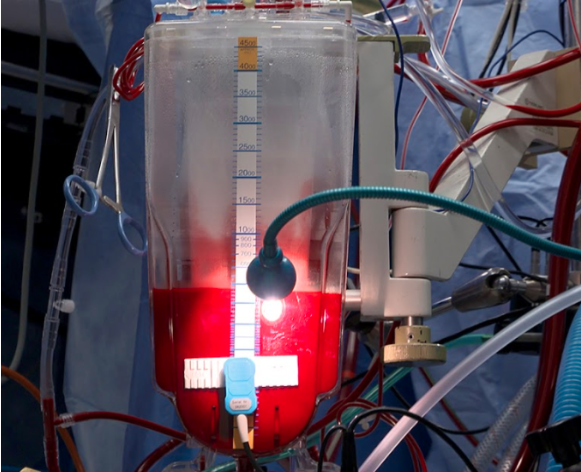Study finds less blood can be used in heart operations

A major international study involving Australian cardiac patients has found surgeons can safely use significantly less blood than they traditionally have been in heart operations.
Researchers – including Royal Melbourne Hospital heart surgeon and University of Melbourne deputy director of surgery Professor Alistair Royse – believe they can safely save the equivalent of one blood donation per moderate-to-high risk patient.
Led by principal investigator Professor David Mazer from the University of Toronto, the five-year study is the largest of its kind and monitored patients at 73 institutions across 19 countries.
The results of the Transfusion Triggers in Cardiac Surgery Trial (TRICS-III) have been published in the prestigious journal New England Journal of Medicine.
Australia’s National Health and Medical Research Council provided $1.4 million in funding that was crucial in the study being expanded from an initially planned 3500 patients to more than 5000.
The Australian arm of the study involved more than 620 patients across 12 hospitals in Victoria, New South Wales and South Australia.
“This study may significantly change clinical practice across the globe by supporting the ongoing trend towards using less blood transfusions at a lower haemoglobin concentration,” Professor Royse said.
“There is a philosophical mind-set towards using less blood and what this study shows is that it is safe to be going down this pathway.”
Professor Royse said using less blood during heart surgery would represent a significant cost saving to health systems globally.
In Australia, while blood is given freely by donors, the current listed cost per unit is $412.
Professor Royse said on top of that are hospital costs that can take the total cost of a transfusion up to as much as $1000 per unit.
Professor Royse said while the study was extremely successful, more research was now needed to analyse the extent of the potential cost saving across Australia’s health system.
“We also should be researching whether we have to dilute blood during heart surgery as much as we do in the first place,” he said.
Dr Chris Hogan, a haematologist and transfusion medicine specialist who works with Professor Royse at Royal Melbourne Hospital, said the study represents "landmark" evidence supporting the trend toward using less blood.
"These research findings represent a landmark study in the contemporary transfusion medicine literature, and should now confidently inform transfusion practice in cardiac surgical settings,” Dr Hogan said.
For the full story, and to watch Professor Royse in surgery, go to Pursuit.
For the paper, go to the New England Journal of Medicine.